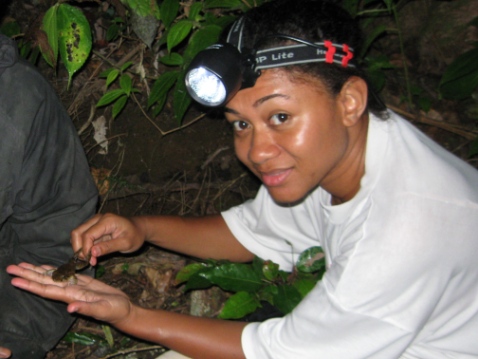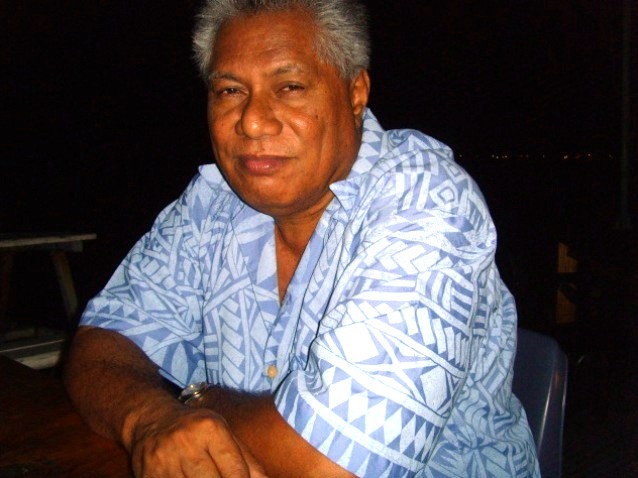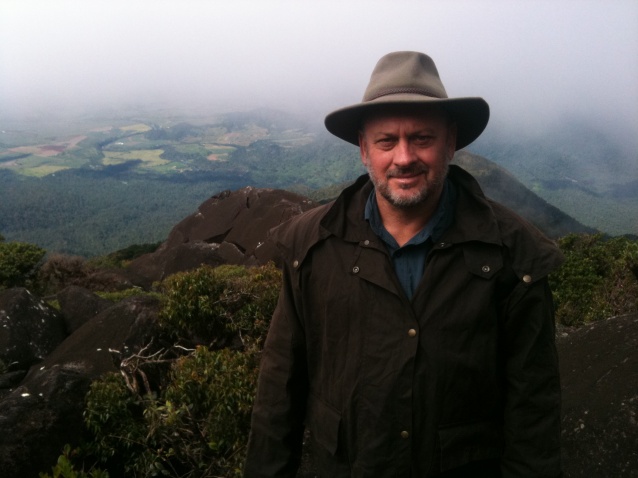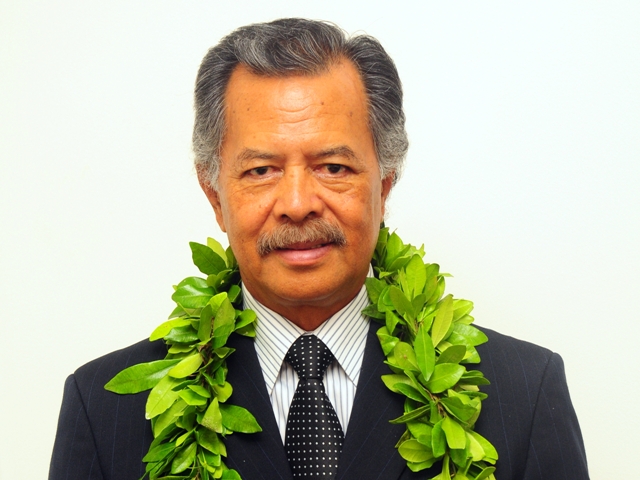Hon. Henry Puna
The Hon. Henry Puna, Prime Minister of the Cook Islands also holds the portfolios for the Public Service, National Policy and Planning, ICT, Emergency Management, Crown Law, Energy, Renewable Energy, Climate Change, Justice, Environment, Ombudsman, and Parliamentary Services.
The Hon. Henry Puna attended schools in Cook Islands and New Zealand and graduated from the University of Tasmania with a Bachelor of Law Degree in 1979.
Following his studies, he has served as a lawyer in the Cook Islands and was a partner in the law firm Miller Puna and Co until 1989 when he assumed the role of Secretary to the Ministry of Trade, Labour and Transport until 1999.
He left the Public Service to move to Manihiki the island of his maternal grandmother to work on his pearl farm until his election as the Member of Parliament for Manihiki and Prime Minister in November 2010.
He is married to Akaiti and has 9 children. The Prime Minister is a very keen golfer and has an interest in tennis, rugby, soccer and squash.
Nunia Thomas
Nunia Thomas joined NatureFiji-MareqetiViti as a conservation officer in December 2007. Nunia is from Drauniivi in Ra and completed her MSc. at the University of the South Pacific in September 2007. The subject of her thesis was ‘The Distribution and Abundance of the Endangered Fiji Ground Frog (Platymantis vitianus) and the Introduced Cane Toad (Chaunus [Bufo] marinus) on Viwa Island in Tailevu’.
As an undergraduate student (2000 – 2002) at the University of the South Pacific, Nunia gained field research experience in various wide-ranging projects in Fiji: Lapita archeological surveys, vegetation ecology studies, bird surveys and frog surveys; Youth/ HIV-AIDS awareness workshops and undertook counselors’ training for women with the YWCA.
Nunia was a graduate assistant at the USP’s South Pacific Regional Herbarium from 2003 – 2007, where she attained her MSc and conducted biodiversity survey expeditions, environment impact assessments and community based conservation workshops with the SPRH team. Nunia was involved in planning and establishing long-term monitoring plots for invasive plants in two of Fiji’s protected areas (Wabu Forest Reserve and Sovi Basin); was part of teams conducting ecological studies on some of Fiji’s endangered species (Fiji crested iguana, Fiji ground frog, Giant forest honey-eater); and post-graduate invasive species research (cane toads and the small Indian mongoose). Nunia has been co-author in five scientific papers through her partnered research on Tropical Montane Cloud Forests, Fiji crested iguana ecology and Fiji ground frog ecology and has contributed to several technical reports (Institute of Applied Sciences USP, Conservation International, NatureFiji-MareqetiViti).
With her first project with NFMV launched in April 2008 (the Endangered Species of Fiji website), Nunia has so far managed fourteen of the organisation’s projects 30+ projects; she is the Fiji NGO focal point of the Ramsar Conventional on Wetlands Communication, Education, and Public Awareness; is technical advisor on the government led American Iguana Eradication Campaign Task Force, National Protected Areas Committee, NBSAP Species working group, manages the organisation’s biodiversity campaigns and volunteers; and is NatureFiji-MareqetiViti’s herpetologist in biodiversity expeditions.
Outside of work, Nunia has been an active member of the Roman Catholic Youth of the Archdiocese of Suva – particularly for her parish and the Central Eastern Region; and maintains an active presence with her faith community in Lami as a continuous source of inspiration for her passion in Fiji’s biodiversity and its sustainable use.
Tusani Joe Reti

Tusani has more than 40 years working experience in the environment and resource management fields in Samoa and the Pacific. He was head of the Forestry Division in Samoa from 1980- 1985 before joining SPREP in 1986. In 1989, Tusani returned to Samoa at the request of its government to set up its Environment Agency (now the Ministry of Natural Resources and Environment (MNRE). After completing his two years with the Government of Samoa, he returned to SPREP in 2000 to manage the first GEF-funded project in the Pacific-the South Pacific Biodiversity Conservation Project (SPBCP).
Tusani has undertaken work for regional and international organizations in many countries of the Pacific including Fiji, Cook Islands, Tonga, Vanuatu, Marshall Islands, Palau, FSM, Kribati and Tuvalu. He was heavily involved in the organisation of the Conference on Nature Conservation and Protected Areas in Samoa (1985) Vanuatu (1989) and Tonga (2003). Tusani was one of the first drafters of the Action Strategy on Nature Conservation and was a founding member of the Roundtable on Nature Conservation in the Pacific.
As manager of the SPBCP Tusani helped set up 17 community-based conservation areas in 14 Pacific island countries. He is now a village chief (matai) and has helped his village of Savaia in Samoa set up and manage its marine conservation area over the past ten years.
Nik Sekhran
Nik Sekhran is the Principal Technical Adviser on Ecosystems and Biodiversity for UNDP, heading the UNDP Global Biodiversity Programme - which works with developing countries to put in place the policy frameworks, institutional architecture and capacities, financing systems, and know-how to conserve biodiversity and mainstream biodiversity management into development. He oversees a portfolio of projects in 146 countries worth $1.5 million in direct funding and USD 4 billion in co-financing.
An environmental economist with 20 years of experience, Mr Sekhran is a key opinion former in global biodiversity work-working hard to advance the objectives of the Convention on Biological Diversity. He is currently a member of the GEF Biodiversity Technical Advisory Group and the CBD's High-level Panel on Global Assessment of Resources for implementing the Strategic Plan. His work straddles a range of ecosystem management arenas from protected area management and finance, landscape management, sector based mainstreaming strategies for conservation, and ecosystem based approaches to climate change mitigation and adaptation.
He has a keen interest in the dynamics of planetary change and the impacts on development and human welfare. He is a staunch advocate of natural solutions, the use of ecosystem goods and services to reduce the vulnerabilities of people to these changes-particularly important for Pacific SIDS. Mr Sekhran has lived and worked in the Pacific for five years-in Papua New Guinea, where he worked for the Department of Finance and Planning and the Department of Environment and Conservation. He has also worked in other Pacific Nations, including Vanuatu, Samoa and the Federated States of Micronesia. He has a strong interest in conservation and development in the Pacific islands.
Dr Tim Flannery

Tim Flannery has published over 130 peer-reviewed scientific papers and has named 25 living and 50 fossil mammal species. His 32 books include The Future Eaters and The Weather Makers, which has been translated into over 20 languages and won the NSW Premier’s Book of the Year award. He has made numerous documentaries and regularly reviews for the New York Review of Books.
He received a Centenary of Federation Medal and in 2002 delivered the Australia Day address. In 2005 he was named Australian Humanist of the Year, and in 2007 Australian of the Year. In 2011 he was made a Chevalier of the Order of St Charles.
In 1998-9 he was a visiting professor at Harvard, and is a founding member of the Wentworth Group of Concerned Scientists, a director of the Australian Wildlife Conservancy, and has served on the International Board of WWF.
In 2007 he co-founded and was appointed Chair of the Copenhagen Climate Council and from 2011 to 2013 he was Australia’s Chief Climate Commissioner. He serves on the Sustainability Advisory Boards of Siemens and Tata Power (India), and is currently the Director of the Australian Climate Council.
